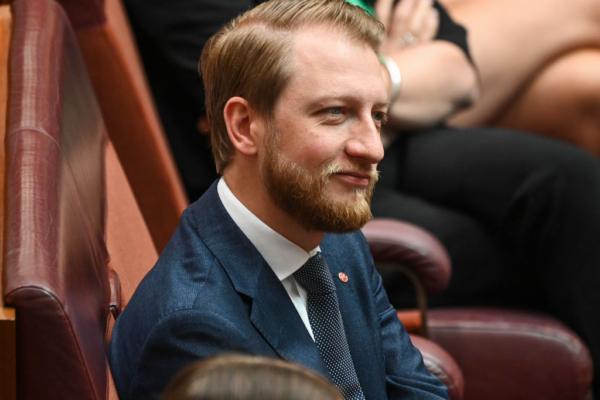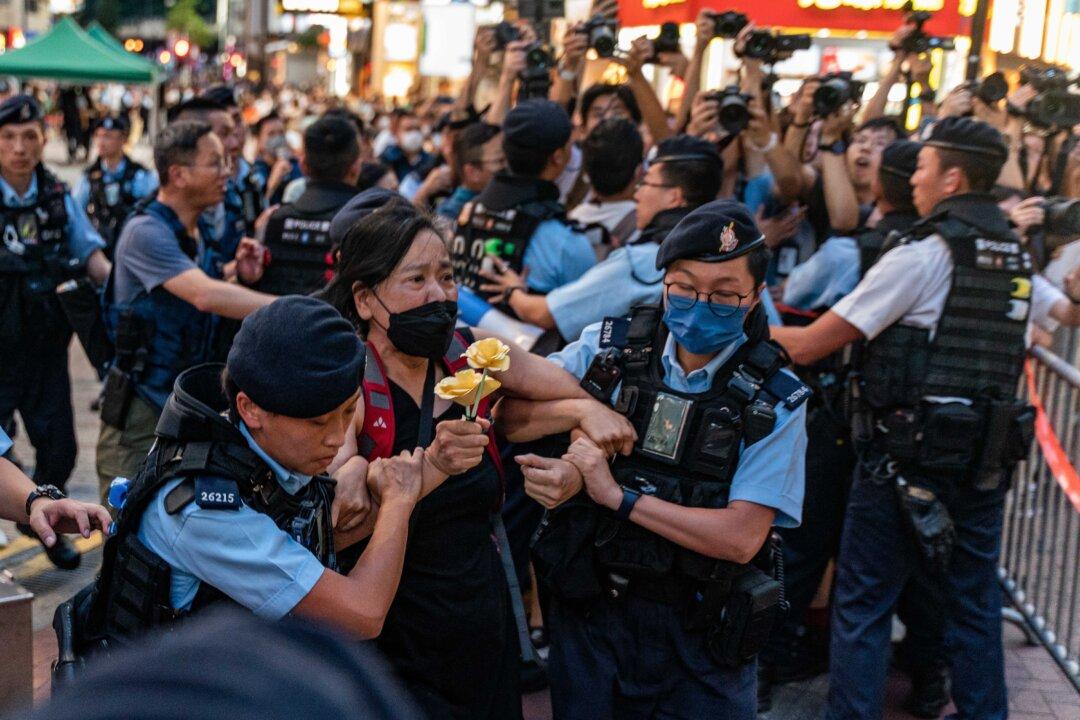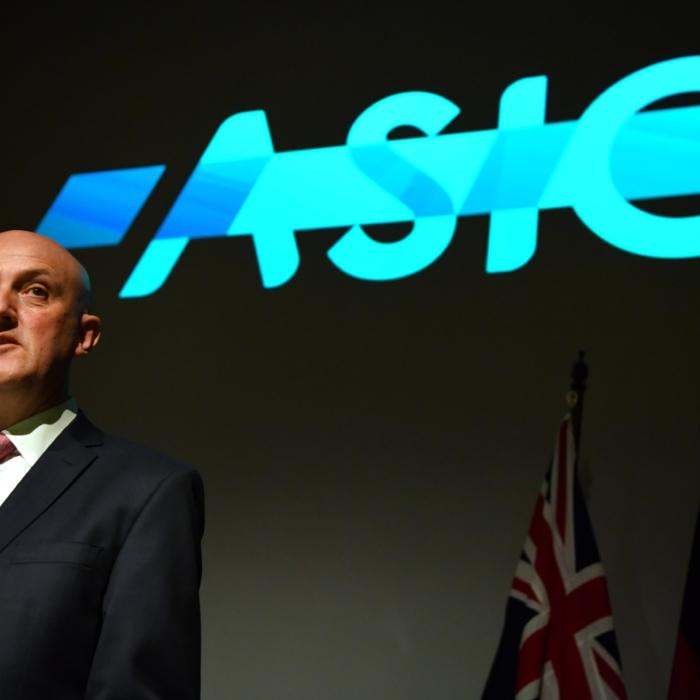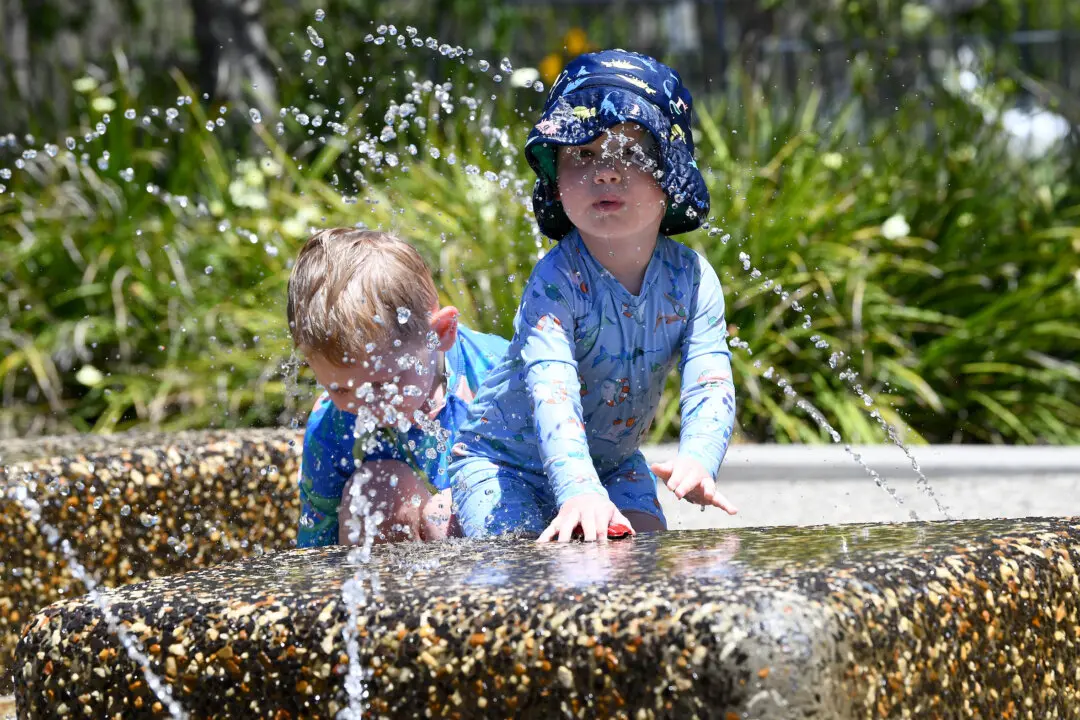Australian Federal Police (AFP) are facing tough questions after the Hong Kong Police Force was revealed to have toured AFP sites and undertook training in Australia.
Shadow Home Affairs Minister James Paterson has questioned AFP Commissioner Reece Kershaw about this visit, saying Hong Kong police were a “branch of the Chinese Communist Party’s police service.”
The Hong Kong Police Force revealed it had visited AFP departments in Canberra and Perth recently and completed training at the Australian Institute of Police Management in Sydney.
“It seems ironic to me that we are training, ourselves, a branch of the Chinese Communist Party’s police service in Hong Kong, particularly in light of the fact of their horrific treatment of pro-democracy protesters during the debate about the national security law, which is not just a historical issue but a contemporary one,” Mr. Paterson said.
The Liberal senator questioned if this level of cooperation with the Hong Kong Police Force was appropriate given recent human rights abuses.

Mr. Paterson cited several recent examples, including locking up opposition politicians, unionists, and media proprietors in the major city.
“They have been out there in recent months arresting people for lighting candles to commemorate Tiananmen Square. They are locking up media proprietors for criticising the Chinese government. They are locking up unionists. They are locking up opposition politicians,” Mr. Paterson noted.
Intelligence Sharing With Beijing
In response, Mr. Kershaw said the AFP had intelligence-sharing agreements with the Chinese Ministry of Public Security (MPS) in Beijing, quipping that it would not make the senator “feel comfortable.”The commissioner explained the AFP is a net receiver of intelligence and that it was useful, especially in dealing with the illicit drug trade.
“We do receive a large amount of intelligence from the MPS and that is part of our relationship with the MPS. We are based in Beijing, as you know, in Guangzhou and in Hong Kong ... What I’m trying to say is our view is we are trying to influence and provide the capability where it is in the interests of our nation,” Mr. Kershaw said.

However, Mr. Paterson said he understood the nature of intelligence-sharing with the Chinese authorities, and that it was conducted at arms length.
“This is different: this is training police who are part of a police force that’s involved in the abuse of human rights, which no Australia would want to be facilitating or permitting in any way, or encouraging in any way. I don’t think we should view those two separate things in the same way, and I would encourage you to take it up as you have said you will,” Mr. Paterson said.
In a post to X on Oct. 17, Hong Kong Police said their police force exchanged “management insights” with representatives from law enforcement, intelligence, and regulatory agencies in Australia.
Acting Deputy Commissioner of Crime Grant Nicholls said he had been advised they also visited the AFP’s Joint Cyber Coordination Centre.
While Mr. Nicholls offered to follow up Mr. Paterson’s question, he said the Hong Kong Police officers “may have had some interaction” with the AFP’s asset seizure team.
Recent ASIO warning
The Senate questioning follows accusations from Australia’s domestic spy chief, Mike Burgess, that Beijing was engaging in intellectual property theft on a sophisticated scale “well beyond traditional espionage” during a Five Eyes summit in California.Recently, ASIO disrupted a plot by Chinese intelligence to infiltrate a prestigious institution with an academic who set PhD students with assignments in line with intelligence requirements.
However, he was removed from Australia before “harm could be done,” Mr. Burgess said.
Australian Prime Minister Anthony Albanese is planning to visit Beijing from Nov.4 to 7 where he will meet with Chinese leader Xi Jinping, the general secretary of the Chinese Communist Party.







